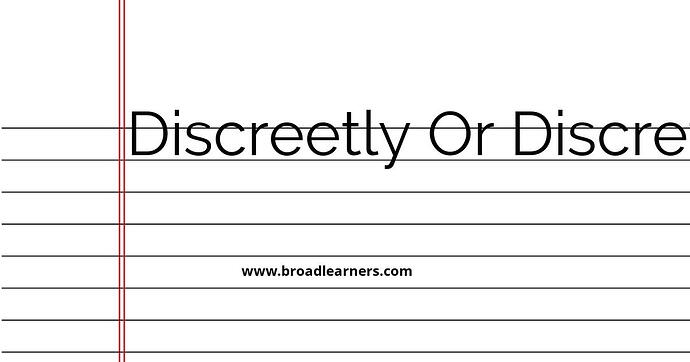'Discreetly' and 'discretely' are commonly confused words in English grammar. Understanding the difference between 'discreetly' and 'discretely' is important to use them correctly in written and spoken English.
'Discreetly' is an adverb that means to do something in a careful and cautious manner, especially in order to avoid drawing attention or causing embarrassment.
'Discretely' is an adverb that means separately or individually, without being connected or related to something else.
Let's take a closer look at the meanings and usage of 'discreetly' and 'discretely'.
| 'Discreetly' | 'Discretely' |
|---|---|
| The word 'discreetly' is used to describe how an action is performed, indicating caution or carefulness. | The word 'discretely' is used to describe something that is separate or distinct from something else. |
|
|
To remember the difference between 'discreetly' and 'discretely', it can be helpful to remember that 'discreetly' has the word 'discrete' in it, indicating caution or carefulness, while 'discretely' emphasizes separation or distinctness.
Here are some examples of correct usage:
- She discreetly asked him to leave the room.
- The artist discretely signed each painting.
- The information was discreetly shared among the team members.
- The different departments in the company are discretely managed.
Remembering the correct usage of 'discreetly' and 'discretely' will improve your grammar and communication skills.
